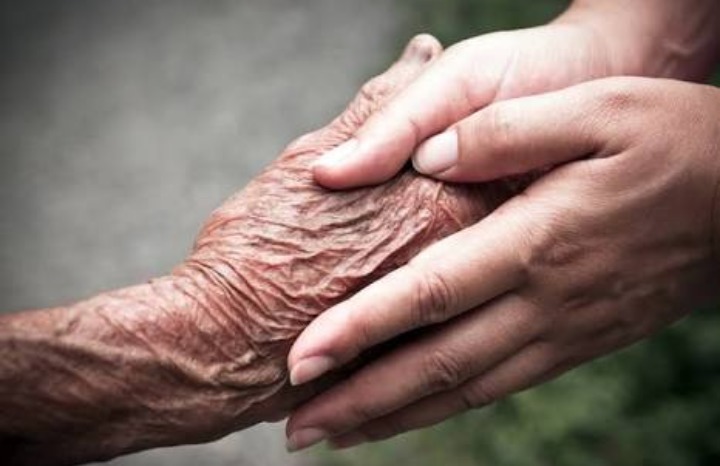What makes us human?
Dementia forces us to make a choice. Confronted with someone who perceives the world differently than us, who cannot conceptualise a range of options or contribute to the productivity of material society, we are forced to decide whether we will accept them as a person or not.
Aug 23, 2024

DANCING WITH DEMENTIA- Dr Cecilia Chan
I suspect we’ve all been there, bad dates where we can’t bear to make it through dinner and have to think of creative excuses to get out. I certainly had my share of dates gone really wrong and could not wait to escape. I was fortunate because I did manage to escape. I am sure none of you bat an eyelid.
Many did bat more than just eyelids when my friend wanted to escape from a similar uncomfortable experience. He felt that he was in prison as he had no friends and no meaningful activities. He did not have the freedom to live his life as he please. He was uncomfortable in his surroundings and the people there. He, like me, wanted to escape. The difference was he could not. He is living with dementia.
What are you to make of a place where people expect you to join in bizarre activities as it is not your usual occupation? How many of us will be okay with strangers being involved with the most personal of acts with us, like being stark naked with them and being touched in the most intimate areas and then getting into bed at night and sleeping without disturbance? While this is unthinkable to us yet why do we expect it to be okay for them, just because they have dementia?
I cringe each time I hear the term BPSB (Behavioral and Psychological Symptoms in Dementia) being used so freely and openly. It is as though it is expected that people living with dementia (NOT DEMENTED PEOPLE!) are expected to behave in such an “unacceptable” manner. This view automatically causes us to medicalise and pathologise the expressions of people living with dementia; in fact, we hold them to a higher emotional standard than we would ourselves. There is an immediate separateness between the US and THEM. The obvious double standard becomes blurred. Think for a moment.
We get angry, sad, frustrated, or anxious, but those living with dementia have “behavioural problems.” We go for a walk and do our “steps”. When we get bored or upset we can leave the place. However, people with dementia “wander”, “escape” or “elope”. We get annoyed when forced to follow routines and schedules not suitable to us, but people with dementia “sundown.” We scroll through Shopee and buy non-stop, but people with dementia “hoard.” We will absolutely resist being locked up, bossed around, or touched by strangers. Yet, we accuse people with dementia of getting “agitated”, aggressive” and “resist care”! If people are upset because they are being undressed by strangers, are locked inside a living area, have no meaningful engagement in their days, or are simply expressing the range of emotions that we all display at times, how is that BPSD?
If we lose the ability to vocalise our emotions and needs, how can we communicate them?
Very few people with dementia can manage entirely on their own; but to be brutally honest though, none of us can. We, human beings are all part of couples, families, and friendship groups, which are interdependent. It will require us, collectively, to reevaluate what makes us human.
Dementia forces us to make a choice. Confronted with someone who perceives the world differently than us, who cannot conceptualise a range of options or contribute to the productivity of material society, we are forced to decide whether we will accept them as a person or not.
If the answer is yes, then perhaps it is time to admit that we have been working with a narrow, impoverished view of personhood. A view that privileges the rights and interests of thinking, and choosing consumers while marginalising those living with dementia. A view that reflects that those living with dementia do not fit into our understanding of what a human should be.
Perhaps it is from this narrow view that a person with dementia can only be understood as a “burden” on society. Worldwide, it has been estimated that there will be over 80 million people living with dementia by 2040 (Prince and Jackson 2013). Will these 80 million human beings be merely burdens?
I believe dementia is the greatest shame of modern medicine; not because there have been no significant advances in treatment, but because — from restraints to perpetual stigmas and stereotyping, to antipsychotics, to labelling — we have lost our recognition of the humanity of those living with the diagnosis.
I adore Dr Allen Power’s definition of dementia simply as “a shift in the way a person experiences the world around her/him”.
This provides us with the ability to change the mindset of blaming everything on brain disease.
By understanding that persons living with dementia experience the world differently, we can begin to uncover the root causes and work on solutions that lie within supporting our shared humanity.
We all need to look closely at ourselves– our words and our practices, to question if we are sincerely honouring a person’s dignity, value, and human rights in everything we do.
Dr Cecilia Chan is a Gerontologist and Dementia Advocate and Activist. She can be contacted via WhatsApp (013-4384388).







Total Comments:0